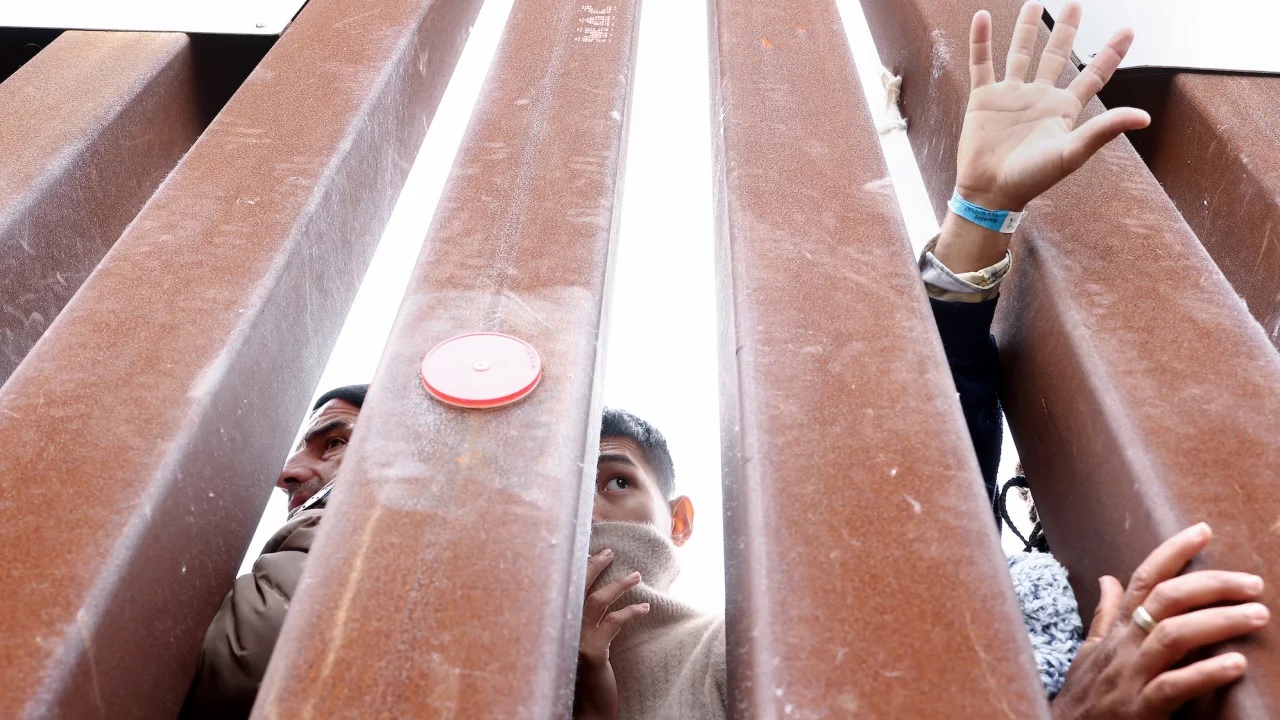(Trends Wide) — The expiration of a covid-related border restriction policy known as Title 42 has so far brought fewer migrant arrivals than expected, but southern border communities remain concerned about overcrowding at immigration detention and processing centers.
Homeland Security Secretary Alejandro Mayorkas said Sunday that the number of migrants at the southern border of the United States “is markedly lower than it was before the end of Title 42.”
Title 42, a controversial Trump-era policy since the start of the Covid-19 pandemic, allowed authorities to quickly turn away migrants at the US-Mexico border. The policy ended Thursday night along with the coronavirus national public health emergency.
The mayor of Laredo, Texas, told Trends Wide’s Jim Acosta that while the number of people arriving may be lower than federal officials were expecting, his community is still on “high alert.”
“The unfortunate reality is that we were already close to capacity in our hospitals before Title 42 expired and without a pediatric intensive care unit,” said Mayor Víctor Treviño, who is a physician. “We wouldn’t be able to serve some of the children and family groups that are coming in.”
His community received about 700 migrants on Saturday, the mayor said.
“We remain on high alert because Brownsville and El Paso still have large numbers of people, so we have to take that into account,” he added.
Authorities had warned that the end of Title 42 could spark a surge of migrants that would exacerbate an already difficult humanitarian crisis at the southern border. Federal and local authorities prepared for the influx, sending thousands of federal agency personnel to the border to support local authorities.
Authorities had expected the number of migrants to rise to an average of 2,000 to 14,000 a day, according to an official, Matthew J. Hudak, deputy chief of the US Border Patrol.
“These are not the numbers that we initially expected, and we expect them to continue like that,” said the mayor of McAllen, Javier Villalobos, a city located on the US-Mexico border in south Texas.
In El Paso, where hundreds of immigrants have slept on the sidewalks after the recent surge in arrivals, Mayor Oscar Leeser said the city has so far experienced a “smooth transition” following the implementation of Title 42, but that keep preparing for whatever the future may hold.
“We know we still have to prepare for the unknown, because we don’t know what is going to happen next week and what will continue to happen day after day,” Lesser said.
His community is currently receiving the resources it needs from the state and federal governments, he said on “Face the Nation” on Sunday.
“We all know the immigration process is broken, there’s no buts, but we’re getting the resources we need because our city and the southern border couldn’t do it without federal help,” Leeser said.
Although border authorities did not see a significant influx of immigrants on Friday, US authorities warn that detention centers could remain dangerously overcrowded. As of Friday afternoon, some 23,400 migrants were in Border Patrol custody, down slightly from earlier in the week, according to a Homeland Security official.
What migrants say
Many of those heading to the United States make long and dangerous journeys in the hope of finding a better and more secure life. According to experts, migrants may be fleeing violence, migrating in search of economic opportunities, or reuniting with family members.
Thousands of immigrants took refuge for weeks around El Paso’s Sacred Heart Church before Title 42 expired. Father Rafael García, the church’s pastor, said the number of migrants has decreased in recent days.
“The numbers have really gone down,” Garcia told Trends Wide’s Jim Acosta on Saturday. “I don’t have answers, but the fact is that around our church and even within our shelter, our numbers have decreased and we are taking it day by day.”
Most of the migrants his church has received recently had traveled from Venezuela, where some described struggling to survive on the equivalent of $5 to $10 a month, the pastor said.
“It is not an easy decision for them to come, but they all believe that they cannot survive in their country,” he added. “Their wish, typical of all, is to say: ‘I want to work. I want to start a new life. I want to send money to my family that is still in Venezuela.’ That is more or less the common theme.”
Migrants arriving at the El Paso church also describe a dangerous journey to get there, Garcia said.
“Some have been kidnapped, others have been harassed in different ways,” he said.
Among those arriving at his church are the injured who need emergency care, Garcia said, as well as pregnant mothers in their third trimester who have made the arduous journey through Mexico for a chance to immigrate to the United States.
“It’s a real crisis. It’s a real human crisis,” he said.
“To do this, there has to be a really serious need to say, ‘I have to leave my country. I can’t stay there,'” the pastor said. “This must be taken into account”.
Those who arrive at a border checkpoint arrive without knowing if they will have the right to asylum or will be returned to Mexico or their countries of origin.
The future
With Title 42 already expired, US authorities are leaning more toward Title 8, a decades-old protocol for asylum seekers that could lead to longer processing times and harsher consequences for those who cross illegally.
The federal plan suffered a setback Thursday when a federal judge in Florida temporarily blocked the Biden administration from releasing the Border Patrol migrants without court notice. The ruling impedes a key administration tool for managing the number of migrants in US custody.
Hudak warned in his brief that without steps to conditionally release some migrants, Border Patrol could have more than 45,000 migrants in custody by the end of the month.
“Non-citizens held in overcrowded facilities are not only vulnerable to communicable diseases, but this vulnerability can be exacerbated by some aspects of non-citizen travel, such as poor health and nutrition, lack of access to healthcare and/or inadequate water, sanitation, and hygiene services during migration to the southwestern border,” the court brief reads.
— Trends Wide’s Priscilla Alvarez, Paradise Afshar, Elizabeth Wolfe, Ray Sanchez and Homero De la Fuente contributed to this report.







